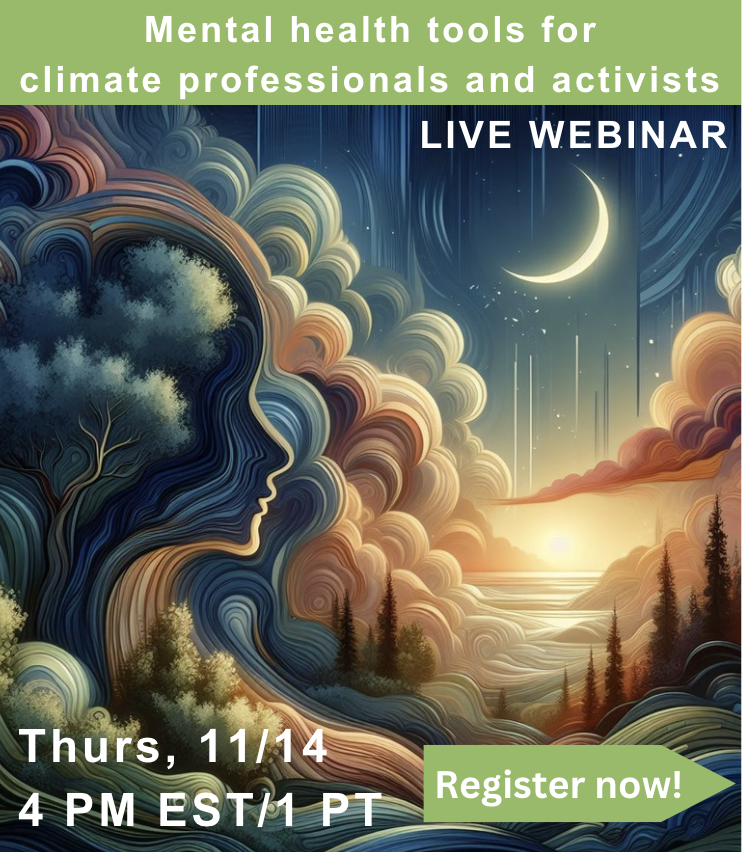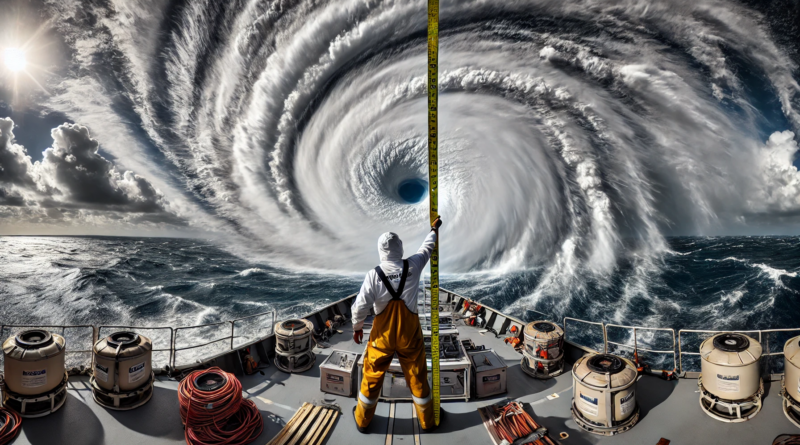Global Heating & Terror Management Theory
Some of you may wonder how people can be so blasé about the global heating that is causing storms, droughts, floods, and wildfire all around the world. The headlines are filled with news of natural disasters in North Carolina, Maui, and thousands of other places, but nobody seems to have the gumption to actually address the cause of those disasters — dumping billions of tons of carbon dioxide into the atmosphere all day, every day. Then we go and elect a proven ignoramus who lies when he says sea levels have only risen an eighth of an inch over the past 300 years.
Jamie Goldenberg is a professor of psychology at the University of South Florida. Emily Courtney is an assistant professor at the University of South Florida. Joshua Hart is a psychology professor at Union College in Schenectady, New York. Writing in The Conversation this week, they explore how the existential terror of hurricanes can fuel climate change denial. They begin with the two hurricanes — Helene and Milton — that blasted up the Gulf coast of Florida in the last six weeks. They were among the most destructive in recent memory, and also served as a stark reminder of the increasingly extreme weather events that scientists have long warned would be the consequence of human-driven climate change. Yet many people deny that global heating is a threat that is getting worse or that it exists at all. The three authors ask, “As its impacts grow more visible and destructive, how is this possible?
One possible answer is a unique facet of human psychology — how people manage the fear aroused by existential threats. For many, denying the existence of a global heating is not only convenient, but may feel psychologically necessary. Pulitzer Prize winning anthropologist Ernest Becker put it this way: “The idea of death, the fear of it, haunts the human animal like nothing else. To overcome it by denying it in some way is the final destiny for man.” In non-clinical terms, he was saying that most people struggle to accept their mortality and take pains to distort their perception of reality to avoid confronting it.
Global Heating & Terror Management Theory
In the 1980s, social psychologists developed “terror management theory,” which explored the lengths people will go to in order to deny death. Although we know that not one of the hundreds of billions of people who have every lived made it out alive, still everyone reading this thinks of death as an abstraction — something that is far in the future. We go to bed each night believing we will awake the next morning, and yet, statistically, some of us will not.
Hundreds of experiments have tested the implications of terror management theory. Typically, participants are asked to reflect on their own death while control groups consider less threatening topics like dental pain. The key question each experiment asks is what does the awareness of death do to people? After writing about death, people tend to quickly move on, pushing thoughts of it from their consciousness with distractions, rationalizations, and other tactics. Health care professionals see this every day as people avoid screenings and diagnostic tests that might confirm that they have cancer or some other life threatening disease.
Terror management theory suggests that even when people are not thinking about death, it still influences them. The unconscious mind lingers on the problem even after people have used strategies to quiet the fear by pushing it from awareness. Social psychology experiments show that people often cope with the specter of death by attaching themselves to cultural ideologies such as religion, politics, or even a passionate interest in sports. People who grew up in New England prior to 2007 know someone who believed the unending string of failures by the Boston Red Sox over many decades contributed to the early demise of loved ones. It was not uncommon to hear a Boston fan complain, “The Red Sox killed my father, and now they’re slowly killing me.”
Those worldviews imbue life with meaning, values, and purpose. And that can ease the terror of mortality by connecting people to an enduring and comforting web of ideas and beliefs that transcend one’s own existence. When people are made aware of death, those systems of meaning become even more critical to their psychological functioning. Existential threats make us cling even tighter to the meaning systems that sustain us.
Natural Disasters Lead To Death Anxiety

Much like a terror management lab experiment, natural disasters like hurricanes Helene and Milton trigger death anxiety. Rising sea levels, warming oceans, and intensifying storms are all tied to global heating as the result of human activity, and represent an existential threat. The authors suggest it is not surprising that climate-related disasters disappear from the public consciousness almost as soon as they are over. Google Trends data shows that approaching storms lead to an uptick in searches for “climate change” and “global heating” in the days before Hurricane Helene made landfall on September 26 and Hurricane Milton on October 9, 2024. Those searches quickly declined as people shifted their focus away from the threat after those storms ended.
While climate denial allows people to protect themselves from feelings of distress, terror management theory suggests that denying death is just the tip of the iceberg. For some people, accepting the reality of climate change would necessitate reevaluating their ideologies. it suggests that individuals whose beliefs conflict with environmental concerns may double down on those beliefs to psychologically manage the existential threat posed by climate related disasters. That is similar to how mortality reminders can lead people to engage in risky behavior, such as smoking or tanning. Hurricanes may reinforce denial and commitment to a worldview that rejects climate change.
Building New Worldviews
Although denial may be a natural psychological response to existential threats, America may be getting to a point where even deniers can’t ignore the existential threat associated with global heating. Again and again, Americans are being battered by the devastation from hurricanes, severe flooding, wildfires, and other natural disasters. A terror management analysis suggests that overcoming this fear of such events requires creating a narrative that weaves a discussion of solutions into the ideologies that people rely on for comfort. As psychologists who work on terror management, the authors believe the fight against climate change should be framed not as an apocalyptic battle that humanity is destined to lose, but rather as a moral and practical challenge that humanity can collectively overcome.
As Hurricanes Helene and Milton headed for Florida, well-known Tampa meteorologist Denis Phillips had the right idea. His fact-based social media updates avoided partisan critique. Instead he encouraged neighbors to support one another and emphasized preparedness and resilience in the face of incoming storms. As Milton approached, Phillips told residents to remember his Rule #7. “Don’t freak out. That doesn’t mean do nothing, it means evaluate risks without letting emotion interfere, and take action.” Despite his measured and nonthreatening approach, Phillips and several of his colleagues are being threatened on social media for daring to speak the truth.
Shifting the narrative from helplessness to collective empowerment and action can help people confront climate change without triggering the existential anxieties that lead to denial and can offer a vision for a future that is both secure and personally meaningful, the three authors said in conclusion. At this particular time in America, many people would welcome a strong dose of collective empowerment.

Chip in a few dollars a month to help support independent cleantech coverage that helps to accelerate the cleantech revolution!
Have a tip for CleanTechnica? Want to advertise? Want to suggest a guest for our CleanTech Talk podcast? Contact us here.
Sign up for our daily newsletter for 15 new cleantech stories a day. Or sign up for our weekly one if daily is too frequent.
CleanTechnica uses affiliate links. See our policy here.
CleanTechnica's Comment Policy

